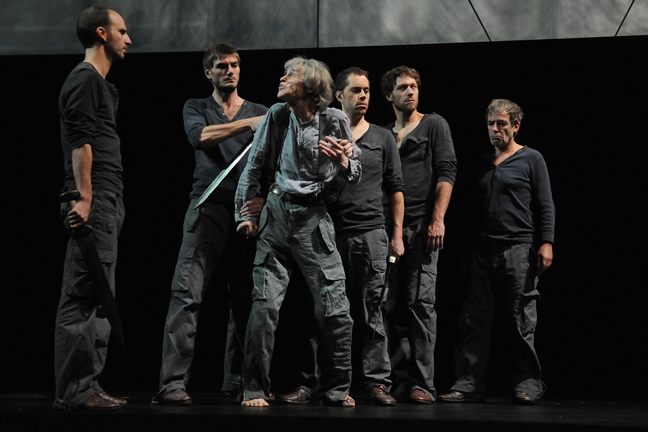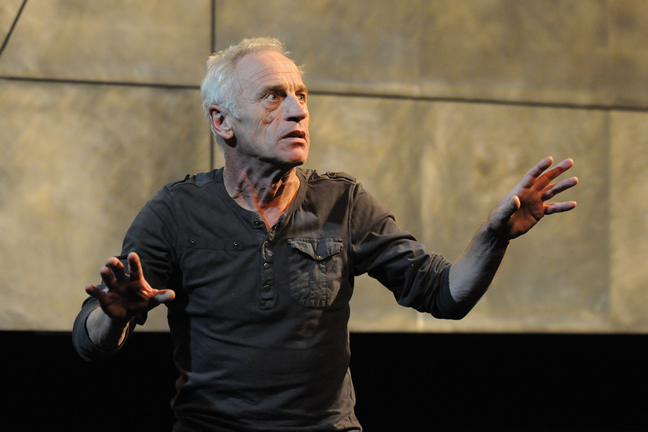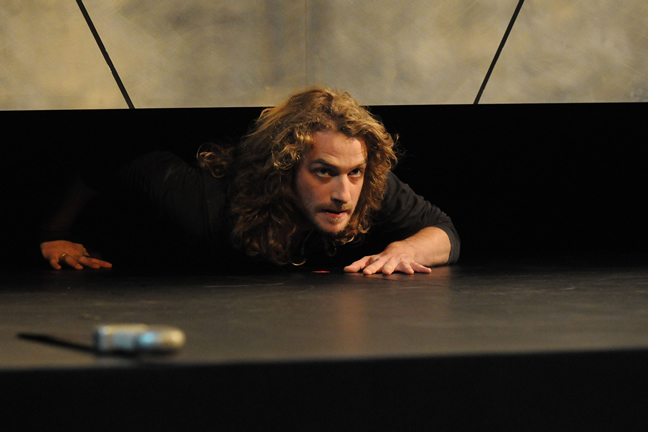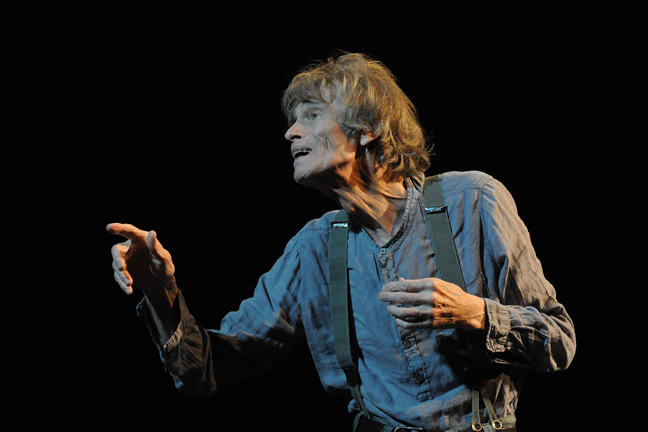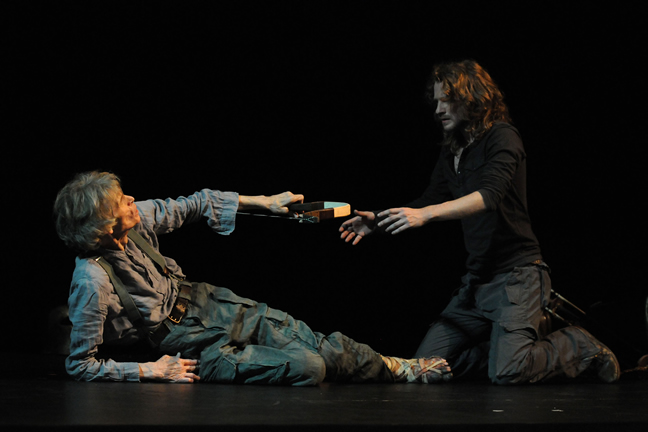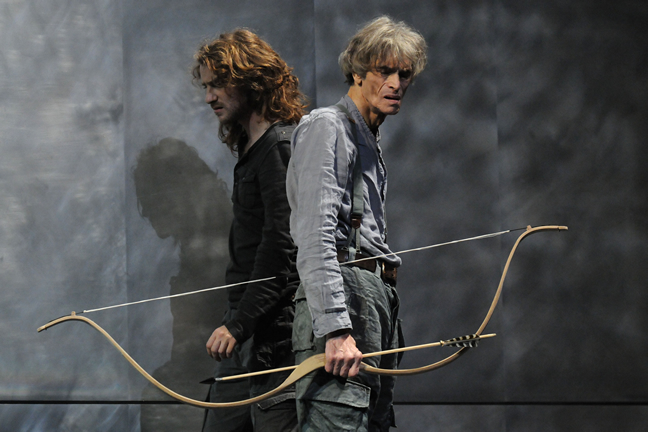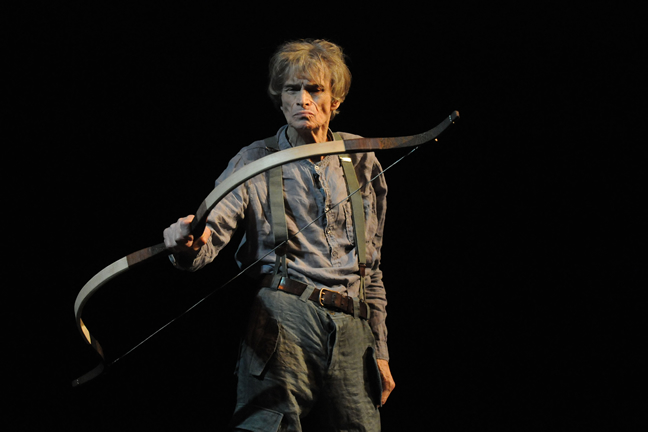Whoever you are, speak, speak to me so that I may at last hear human language.
Jean-Pierre Siméon
The plot of this « variation » is worth telling. The experienced Ulysses, assigns a mission to the young Neoptolemus, son of Achilles : steal the bow and arrows of Philoctetes, without which, Troy cannot be taken. In order to do so, he will have to be cunning - these divine weapons, inherited from Hercules, make Philoctetes invincible. But Philoctetes, who is wounded and incurable, has never forgiven the Greeks (and amongst them Ulysses), from having abandoned him nine years earlier on a deserted island so that they would no longer have to hear his screams and the stench of his wound. Only Neoptolemus can possibly hope to gain the trust of the old warrior, because he is the only one to have not been a member of the Greek army at that time. And so Achilles' noble son must lie to the wounded man and make him believe that he too has hated the Greeks ever since they refused to give him the weapons of his dead father, which were instead given to...Ulysses. This subtle initiation ordeal for the young warrior, caught in a conflict of contradicting duties, is made twice as forceful through one of the most poignant portraits of all, that of a man humiliated because of his suffering, abandoned by his own men to absolute, terrifying solitude, and who, nine years later, sees the faces of his traitorous friends only to be betrayed once again. One can understand why Laurent Terzieff was tempted by this role : it will undoubtedly be a new pinnacle for an artist whose incredibly fruitful career has already spanned more than half a century.
Cast
by Jean-Pierre Siméon,
a free adaptation from Sophocle
directed by Christian Schiaretti
September 24th - October 18th, 2009
Théâtre de l'Odéon 6e
scenography : Fanny Gamet
lights : Julia Grand
costumes : Thibaut Welchlin
special effects : Kuno Schlegelmilch
with Laurent Terzieff, Johan Leysen, David Mambouch*, Christian Ruché, Julien Tiphaine* and the Chorus Olivier Borle*, Damien Gouy*, Clément Morinière*, Julien Tiphaine*
* from the TNP company
production Théâtre National Populaire – Villeurbanne, Compagnie Laurent Terzieff avec la participation artistique de l'ENSATT
et l'aide de la Région Rhône-Alpes pour l'insertion des jeunes professionnels avec le soutien du Département du Rhône
avec la participation artistique du jeune théâtre national.
,


